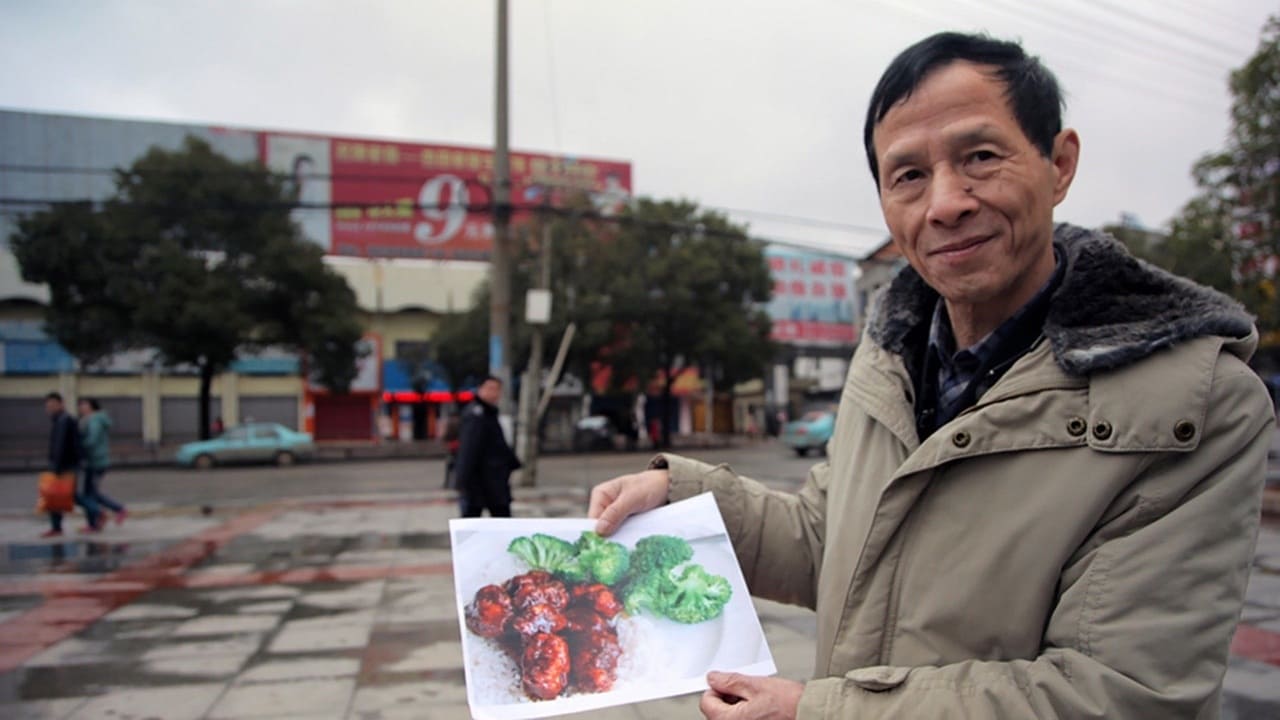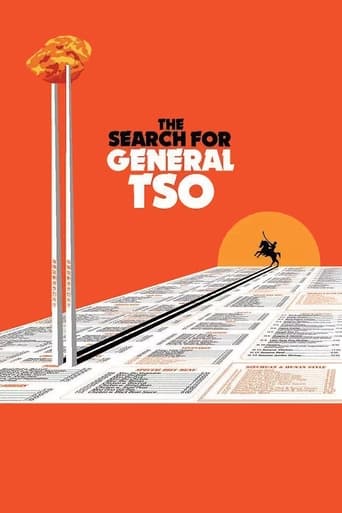

I like the storyline of this show,it attract me so much
... View MoreThis is a tender, generous movie that likes its characters and presents them as real people, full of flaws and strengths.
... View MoreExcellent characters with emotional depth. My wife, daughter and granddaughter all enjoyed it...and me, too! Very good movie! You won't be disappointed.
... View MoreWhile it doesn't offer any answers, it both thrills and makes you think.
... View MoreI often tell people that I spent two weeks in China and never saw a single chicken ball! My point, of course, is that what we in North America call Chinese food isn't really Chinese food. But, whatever, it's so darn good! And I admit that I love General Tso's Chicken. If I'm in a Chinese restaurant, I'm having some! And every time I order it, I wonder, "who was General Tso?" And then this documentary popped up on Netflix. I had to watch it. And it's worthwhile, and very enjoyable.First, there really was a General Tso! Apparently he was from Hunan - I spent some of my two weeks in China in Hunan and never heard him mentioned that I remember, but that's where he was from. A supposedly successful general in the 19th century who never lost a battle and was a fierce defender of Chinese culture, which makes me wonder (and the point is raised in the film) just how happy he would be about this new- fangled chicken dish that bears his name. Although apparently it originated in China - or, Taiwan to be more precise, invented by a chef originally from Hunan and who's none too happy about some of the variations that have appeared to his original recipe in Chinese restaurants around the world. "This is all nonsense" he says when looking at pictures of different versions of the dish. Interesting stuff.This is about more than just food, though. There are some thoughts about Chinese immigration and how the Chinese diaspora spread throughout the United States, some consideration of the industriousness of the Chinese people and the place of the now ubiquitous "Chinese restaurants" and how they've changed over the years, starting out as places that sold Chop Suey, and now with very diverse menus and some ethnic blends as well. There's thought given to the place of the Chinese community in the US, and although it was mentioned only briefly and not developed, there was some thought about possible racism (I suppose) with the mention that people expect Chinese food to be inexpensive, but they'll fork over big bucks for French food. (Not that there aren't expensive Chinese restaurants.)All very well done; all very interesting and enjoyable. It's for light viewing. Although, as I noted, there are more serious issues raised, they're not explored in depth. But if you love General Tso's Chicken and you have some interest in where it came from, this will be a worthwhile documentary to watch. (8/10)
... View MoreI'm not sure what I expected from The Search for General Tso, but I really got a lot out of it. Being a documentary, I suppose one of its main purposes is to inform and teach the viewer. A few things I learned:1. There really was a General Tso. He seems to have been a very proud man, intent on preserving Chinese culture. And, he never ate the chicken dish bearing his name.2. President Nixon's trip to China not only opened the doors for trade with China, but led to an explosion in Chinese restaurants across the U.S.3. General Tso's Chicken was not created in either China or the U.S. It made it's first appearance in 1955 in Taiwan. And Chef Peng, the creator of General Tso's Chicken, seems unamused in what has happened to his original dish as it's spread across every corner of the U.S.4. Just as I suspected, there is no agreement on how to pronounce Tso. I believe I heard at least four, maybe five, different pronunciations in the film. Pretty funny.Informative and entertaining, The Search for General Tso is a winner.
... View MoreWhy the show chose to talk about General Tso's Chicken instead of Chicken Chow Mein or Chop Suey, I don't know but this documentary starts with discussing the origins of this dish and then becomes a lot of things, such as a discussion of the Chinese immigrants' experiences as well as the Americanization of Chinese food. Most of this comes as no surprise to me and probably won't be for you either, as MOST 'Chinese' food we see in American Chinese restaurants isn't Chinese at all but has been changed to suit American tastes. I've been to Chinese restaurants in the UK where 80% (or more) of the menu looks nothing like those in the States. But despite not being exactly authentic, the film does manage to trace the roots of this dish quite nicely and is a nice homage to the Chinese-American experience. Not earth-shattering in its discoveries but pleasant and informative. I do give the film a 7, however, because the graphics are really nice and help elevate an okay story.
... View MoreWho was General Tso, and why are we eating his chicken? This feature documentary explores the origins and ubiquity of Chinese-American food through the story of an iconic sweet and spicy chicken dish.One of the first things viewers will notice are the pronunciation issues. Just as there are many spellings, there are also many pronunciations of Tso. The most common seems to be "so" or "sew", but "tau" and others come up, with no clear winner.Although the core of this doc is tracking down who Tso was and what he has to do with chicken, there is a secondary message: one of Chinese assimilation to America, and how there have been hiccups over the years, particularly during the Korean War.
... View More